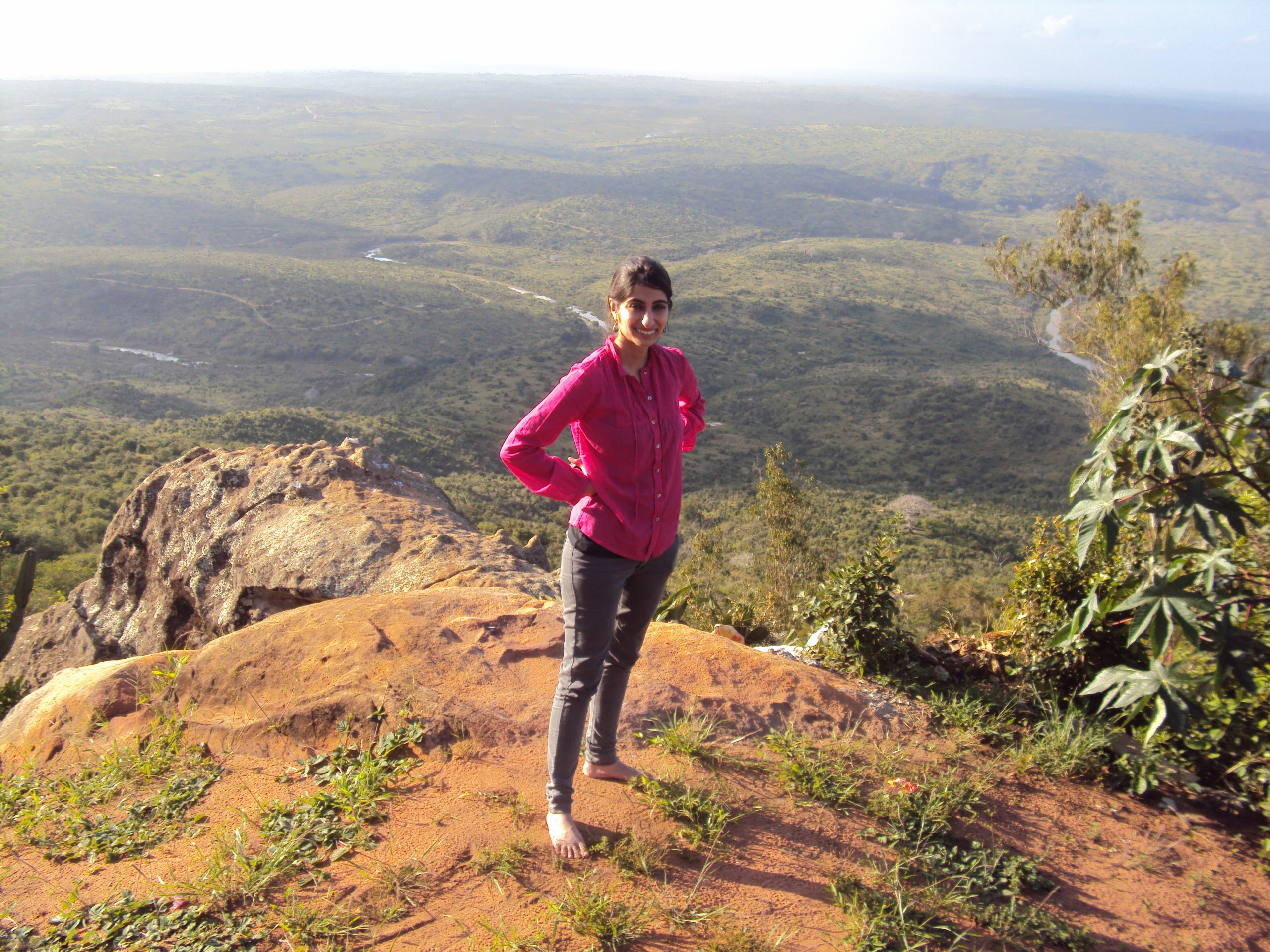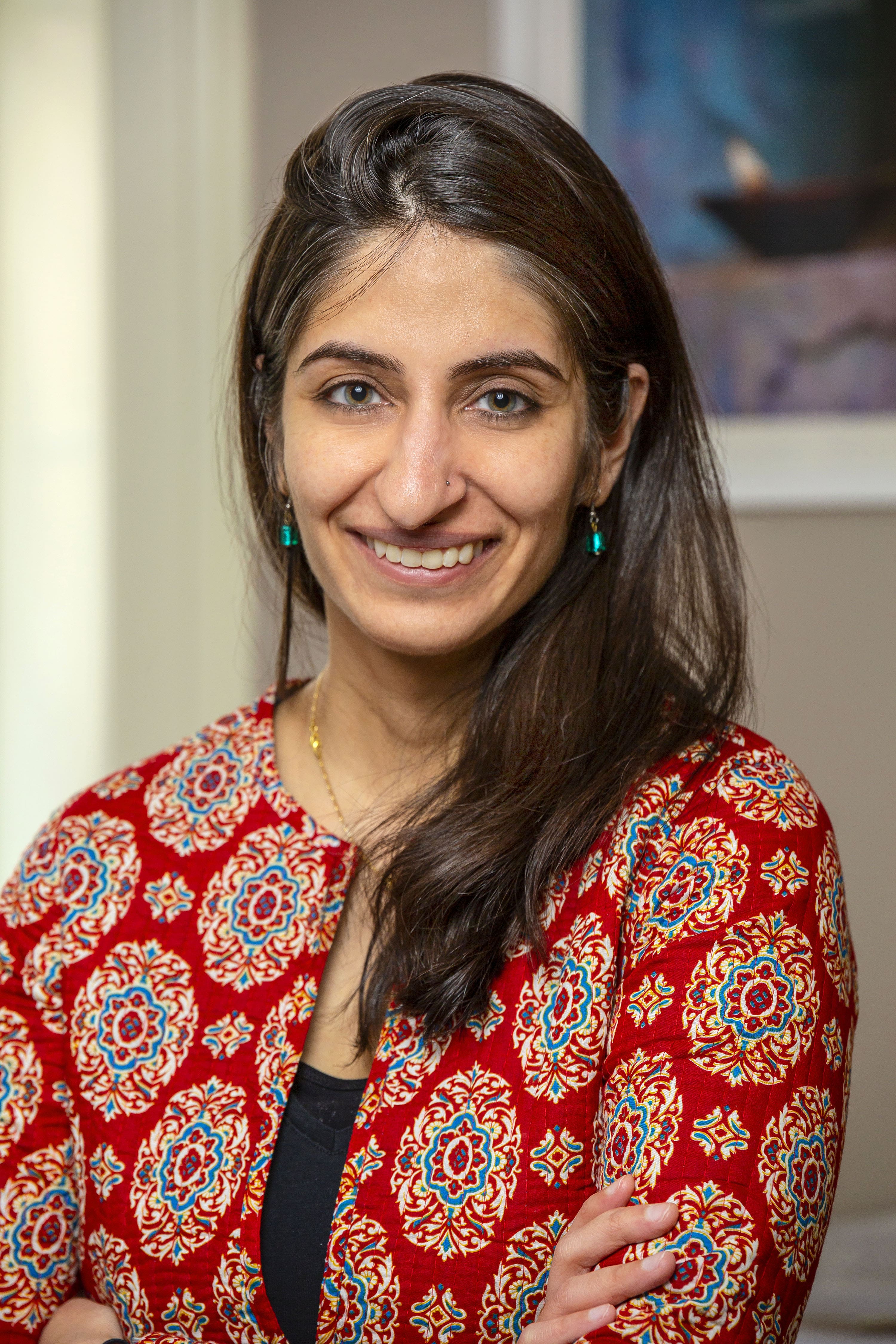
Aditi Malik on her comparative research about what gives rise to different forms of political conflict and violence.
Aditi Malik is interested in studying the conditions that give rise to different forms of political violence. Her research on these topics is explicitly comparative in nature and her work so far has taken her to Cambodia, Rwanda, Kenya and India where she has sought to better understand the means through which conflict comes to be mobilised and the ways in which it can be prevented.
At Cambridge, her MPhil thesis compared the role of local institutions in preventing – or not – ethnic and communal violence. This project was based on a comparison of Rwanda and India. She then went on to complete a PhD in Political Science at Northwestern University. Based on extensive fieldwork in Kenya and India, her doctoral dissertation developed a theory about the relationship between party volatility and elites’ incentives to drive election-related conflict in developing democracies.
Aditi is now an Assistant Professor of Political Science at the College of the Holy Cross. Her current work explores the rise of communal violence in rural areas of India. In the longer-term, she is interested in investigating the reasons why some places are able to develop an enduring culture and sustainable social movements to counter violence against women while others are not.
Political education
In large part, Aditi credits her interest in questions of this nature to her childhood. Growing up, she was exposed to many different perspectives about the world around her. Born in New Delhi, her family moved around India due to her father’s job. Often Aditi and her younger sister would move schools with little warning. At the time Aditi found this hard, but now she says it has helped her to adapt to new situations quickly.
Her parents placed a strong emphasis on education – indeed her mother is a teacher. Aditi was initially drawn to English, but also music – she grew up playing piano and her sister is a professional musician. Her high school in New Delhi was quite unique and stressed the importance of extra-curricular activities. Aditi got involved in student government and voluntary work during her school years.
By the time she was in her final year of school, she had developed a clear interest in Politics and International Relations. Her father used to read the newspaper from cover to cover every morning and so talk of world events was a common occurrence at home, but, despite that, her choice to study Political Science at university came as a surprise to her parents, given the Indian system’s emphasis on science and maths. “It was almost assumed that I would go on to study science because that’s what ‘good’ students are typically expected to do in India. But I was much more interested in exploring why some people have power while others don’t. How is power maintained? What threatens its endurance? Those were the sorts of questions that I was drawn to,” she explains.
Aditi’s experience of studying Politics at school was not a particularly positive one. She says the teaching was quite dry and technical. So she looked at applying to undergraduate courses abroad – at the time, study abroad was becoming increasingly popular and she had several friends who were thinking of doing the same. But she also knew that she would need to secure a scholarship in order to study abroad. As it turns out, a small liberal arts college called Franklin & Marshall (F&M) offered her the most generous financial aid package and so she moved to the US – never having been there before – to begin her degree in the autumn of 2005.
F&M was based in a small Amish town, smaller than her neighbourhood in New Delhi. It was a close-knit campus community, which meant that Aditi was able to focus on her classes. Over the four years, in addition to Political Science, she took several classes in Anthropology and Economics. Being an exclusively undergraduate institution, she was also able to develop close relationships with professors at the college and had mentors in Anthropology, Political Science, and Psychology who helped get her involved in research.
In her second year Aditi took a course led by an African Politics scholar who specialised in the study of human rights and immigration and asylum law. This professor had conducted her own doctoral research in Uganda and Cameroon. “It was then that I realised – really for the first time – that maybe I too could go on to conduct research of my own in the future,” Aditi says. That same year she won a grant to go to Cambodia to study the country’s reconstruction after the Khmer Rouge regime. The following year she worked as a research assistant on a project with a faculty member in the Psychology department and in her senior year, she wrote an honours thesis on what could be done to prevent genocide and crimes against humanity in the 21st century.
Political conflict
When she graduated from F&M with a double major in Political Science and Economics and a minor in Anthropology, Aditi was keen to continue her studies and to focus on African politics and political violence and conflict. She chose Northwestern University due to its distinct strengths in African Studies training and enrolled to do a PhD in Political Science. However, once she had completed the Masters on route to her doctorate at Northwestern, she decided she needed time to be able to think about the issues she wanted to explore in her PhD more deeply and from a different perspective. She applied to the University of Cambridge to do an MPhil and says the year she spent in the UK – 2011-2012 – was “really rejuvenating”. She chose Cambridge because she had spent some time at Oxford during her undergraduate degree and had liked the tutorial system. At Cambridge, where she was based at Newnham College, she found that she was able to immerse herself in her studies and research more fully, as she was temporarily freed up from teaching responsibilities, which were part of her funding package at Northwestern.
Her MPhil thesis was supervised by Dr Sharath Srinivasan, and paved the way to her PhD. She had intended to do her PhD on Rwanda, but found, through the course of her Masters and MPhil, that it was not possible to ask the kind of questions she wanted to about ethnicity and post-conflict reconstruction in an ethical way which would keep her interviewees safe. So she switched her focus to Kenya where there is more open discussion about ethnicity and ethnic politics.
Aditi began her doctoral fieldwork in Kenya and India in early 2013 and returned to her teaching assistant responsibilities at Northwestern that Spring. Her first trip to Kenya was just before the 2013 presidential elections and she returned later that year for a second round of fieldwork between September and December. In addition to mentoring her at Cambridge, Dr Srinivasan also served on her PhD committee at Northwestern. The main question that she looked at for her dissertation was: why does electoral violence decline in some places while it recurs or even escalates over time in others? Both Kenya and India have experienced electoral conflict around several elections but Aditi notes that whereas the risk of such violence persists in Kenya, India has seen a drastic decline in the outbreak of election-time clashes since the mid-1990s. “My main argument to account for this variation is that political parties in the two countries are organised very differently. These differences have important consequences for elite strategies.
"Parties in Kenya are notoriously unstable. Not only do party names often change from one election to the other but political parties – including incumbent parties – sometimes disappear entirely. Indian parties are more established,” says Aditi. “That affects the way elites think about the electoral utility of violence. If there is an expectation that parties will generally endure from one election to the next, then instrumentalising violence is a riskier strategy as it can result in sanctioning by voters. Thus, party durability makes politicians think more carefully about the costs and benefits of stirring up violence.”
Aditi did her viva in May 2015 and is currently writing up articles based on her PhD research as well as working on a book. So far, Aditi’s doctoral dissertation has yielded an article that appeared in African Conflict and Peacebuilding Review in 2016. Two additional papers have been accepted and will appear in print shortly.
The next major project that she is thinking about pertains to the development of social movements and activist networks that agitate against violence – particularly sexual violence – against women.
Once again, this is likely to be a comparative project. Aditi was in India in December 2012 and attended some of the protests against the rape and murder of Jyoti Singh. “At the time, it seemed like we had arrived at a watershed moment and that there was going to be some long-term norm change, but the problem [sexual violence against women in India] persists,” she says. “My sense of this is anecdotal at the moment, but in places like South Africa where there is also a high level of sexual assault, there seems to be a more active, concerted mobilisation that is sustained over time rather than the kinds of episodic protests that we see in other places. I want to understand how a lasting culture of activism against sexual assault and violence against women comes to develop and why it emerges in some places but not others.”
*Photo from fieldwork taken in Kwale, Kenya, in 2013.

Aditi Malik
- Alumni
- India
- 2010 MPhil International Relations
- Newnham College
I am Associate Professor of Political Science at the College of the Holy Cross in Massachusetts. I earned my PhD in Political Science from Northwestern University. My research interests include the study of political violence, gender-based violence, and social movements and contentious politics,. Much of my work involves cross-regional comparisons of African and South Asian cases. I have conducted field research on various aspects of conflict and conflict-resolution in Kenya, Rwanda, South Africa, Cambodia, India, and Nepal. My first book, Playing with Fire: Parties and Political Violence in Kenya and India was published by Cambridge University Press in 2024. Drawing on a cross-regional comparison of Kenya and India along with subnational comparisons in the two countries, this book develops a novel theory about the relationship between political parties and conflict.
Links
https://www.aditimalik.net
https://www.linkedin.com/in/aditi-malik-b99880252












